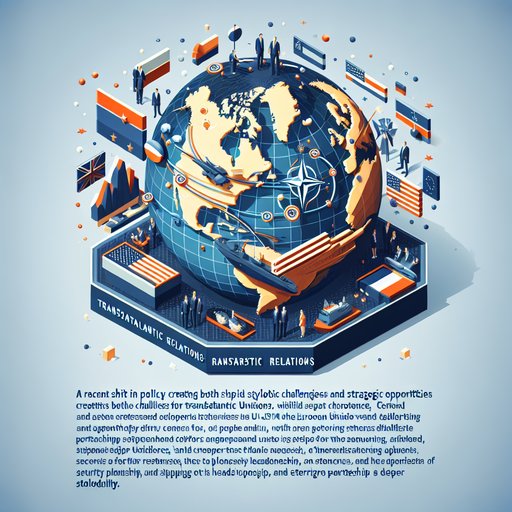
Global equity markets continued to experience notable volatility as July 25, 2025 unfolded, but optimism prevailed among investors. Buoyed by renewed trade deals and marked gains from high-profile companies, the S&P 500 marked fresh record highs, while the Dow Jones and Nasdaq followed with strong showings of their own. As investors weighed solid earnings anticipation with sector-specific pressures, a handful of stocks and strategic moves stood out during the week’s turbulent trading, reflecting both the forces propelling markets upward and the lingering uncertainties keeping volatility at the forefront.

This week, stirring displays of civic activism across multiple countries underscored the enduring momentum of global democracy and human rights movements. From Ukraine to Togo and Germany, citizens have taken to the streets to demand accountability, challenge authoritarian power structures, and affirm their commitment to democratic principles, despite facing heightened risks and government pushback. Recent protests and legal developments, highlighted by visible outpourings of support for transparency, anti-corruption, and minority rights, suggest a resilient optimism among campaigners, laying the groundwork for further advocacy and reform.

The latest round of corporate earnings reports, released on July 25, 2025, reflected a dynamic and often unpredictable business environment. Major companies in technology and science delivered decisive quarterly results, leading to notable movements in stock prices and investor sentiment. Alphabet and Thermo Fisher Scientific both exceeded market expectations, showcasing the resilience of sectors fueled by innovation and organizational agility. By contrast, Tesla’s report highlighted ongoing challenges, underscoring the shifting fortunes in a rapidly evolving market landscape [1] [2] [3].

On July 24, 2025, the international climate policy landscape reached a pivotal juncture as the United Nations’ highest court began deliberating the responsibilities countries bear in addressing climate change. This move follows years of persistent advocacy from small island nations, whose existence is acutely threatened by rising sea levels and damaging weather extremes. As the world contends with escalating climate-related crises—most recently, widespread disruptions in global food prices due to exceptional weather events—this legal milestone signals a renewed urgency and hope that clear global obligations may lead to more enforceable agreements and coordinated action on climate change.

On July 24, 2025, the artificial intelligence community is abuzz as Anthropic’s revolutionary AI model continues to redefine what is possible in automated coding. Released the previous summer, this advanced system has steadily gained recognition for its remarkable proficiency in code generation and problem solving, marking a pivotal shift in both AI capability and developer productivity. As technologists and companies explore its far-reaching influence, this innovation stands as a testament to the rapid evolution of artificial intelligence and its transformative impact on robotics and software engineering [1].

A recent shift in the United States' approach to Ukraine under President Trump has sparked widespread discussion concerning the future of U.S.–European Union relations. This change arrives at a pivotal moment for transatlantic security, with European allies closely watching how American policy adjustments may impact collective support for Ukraine. As the conflict continues to demand international attention, both sides of the Atlantic are re-evaluating their strategic priorities, aiming to preserve unity while adapting to new diplomatic realities.

On July 23, 2025, the Turkish government reaffirmed its strong opposition to any separatist activity aimed at dividing Syria. In a clear and forceful statement, officials in Ankara warned that Turkey stands prepared to directly intervene should any faction attempt to fragment Syrian territory further. This announcement comes amid ongoing tensions in the region surrounding the issue of autonomy for various Syrian groups—a subject that remains highly contentious both domestically within Syria and internationally. Turkey framed its position as a defense of regional stability, signaling its intent to maintain the territorial unity of its southern neighbor even in the face of shifting dynamics on the ground [1].

On July 23, 2025, global financial markets responded swiftly to a new decision by a major central bank to cut interest rates. The move, aimed at bolstering economic momentum in the face of trade uncertainties and evolving fiscal policies, had an immediate effect on key asset classes and investor sentiment. Notably, the price of gold surged within 48 hours as traders recalibrated their positions and weighed the longer-term implications of the central bank’s latest policy adjustment.

Emerging-market economies are once again confronting heightened debt risks amid a resurgence in the US dollar’s strength. The week ending July 23, 2025, saw notable pressure on emerging-market currencies, stemming from a robust greenback that has gained ground against both G10 and most developing-nation currencies. This resurgence is raising concerns about the ability of heavily-indebted emerging-market countries to refinance their burdens and avoid destabilizing financial scenarios in the second half of the year [1].

The semiconductor industry is witnessing a series of transformative developments as leading companies leverage new technologies to drive innovation, efficiency, and growth. On July 23, 2025, some of the world’s most prominent players—including Taiwan Semiconductor Manufacturing Co. (TSMC), Nikon, and Synopsys—announced advancements poised to shape the future of chip design and production. These breakthroughs span next-generation lithography tools, expanded production capacities, and AI-driven chip manufacturing, reflecting broader optimism about the sector’s potential amid soaring demand for artificial intelligence and advanced electronics.




























